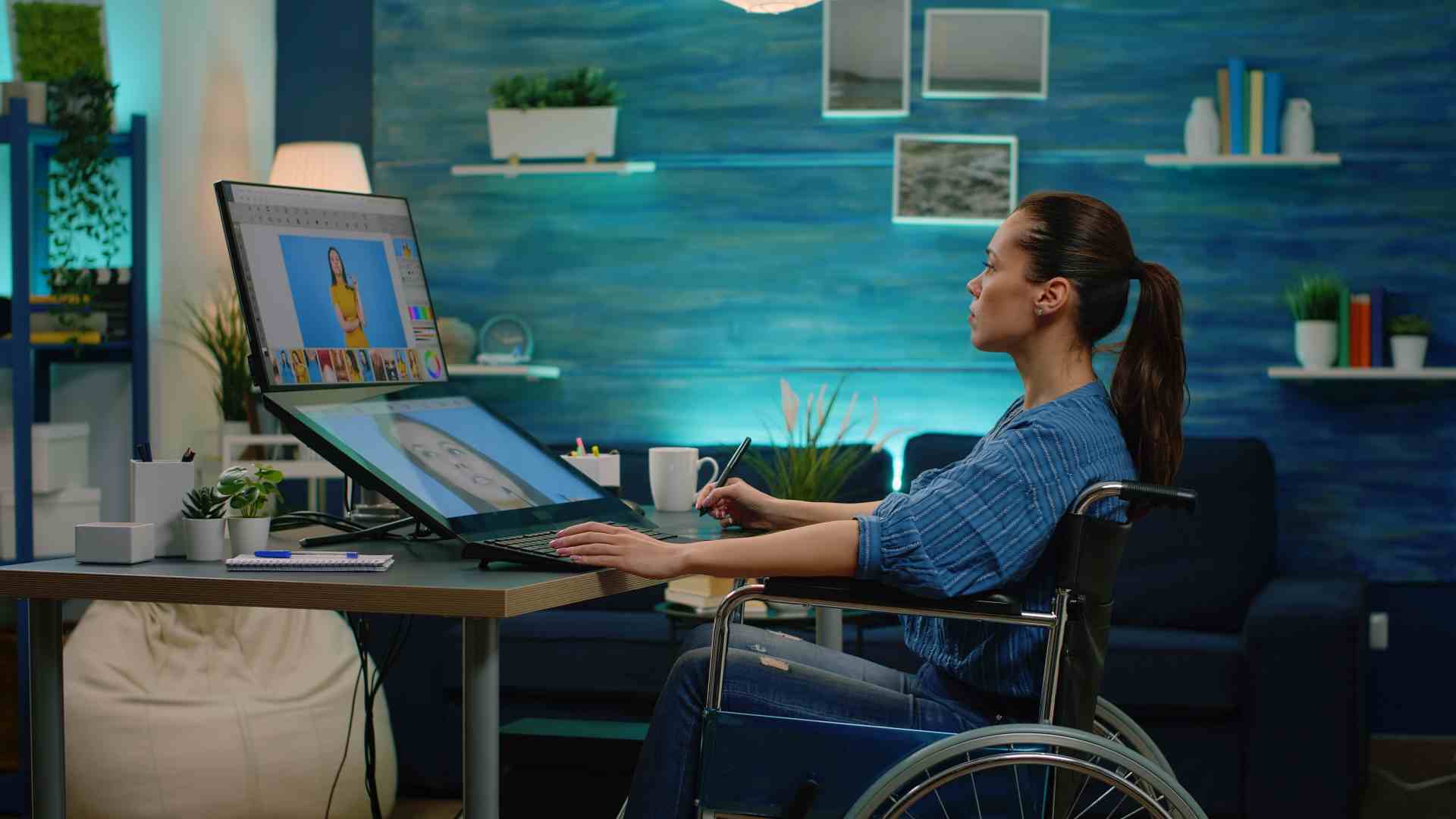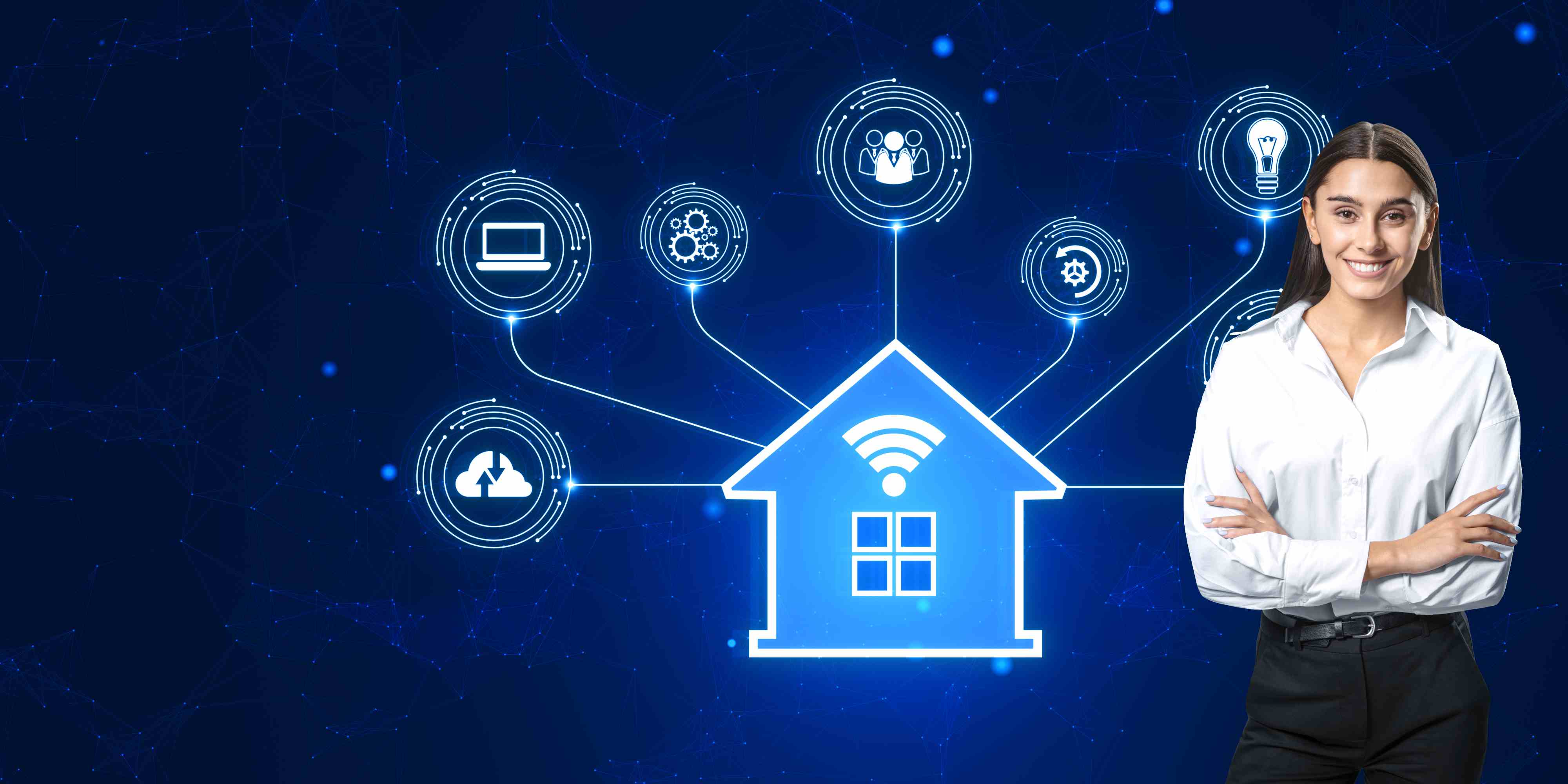AI tools breaking boundaries to elevate the lives of disabled individuals

Disabled individuals have long faced discrimination and exclusion due to the societal norm that they are incapable. However, recent times have seen a significant shift in this perception. New AI technologies have the potential to revolutionize the lives of people with disabilities by providing powerful solutions that simplify both everyday and complex tasks. AI's integration into various aspects of daily life is breaking down barriers, fostering inclusivity, and promoting unprecedented levels of independence.
How AI tools is redefining independence for disabled individuals in different segments
CommunicationOne of the primary challenges faced by people with disabilities is effective communication with
the rest of the world. However, the power of AI can facilitate smooth communication for people
with various disabilities. AI-powered software can describe text and images to users, helping
them visualize conversations. Additionally, technologies that convert text to speech are
beneficial for individuals with brain complexities or paralysis.
Google’s Parrotron,for instance, transforms distorted speech into fluent conversation, aiding
those with speech impairments. These advancements create an inclusive work environment
where individuals with disabilities can participate equally and collaboratively. AI can handle
communication tasks, ensuring that disabilities do not impede participation. For businesses, AI
can identify customers with disabilities and tailor customer service to their needs, enhancing
satisfaction and loyalty.
AI Tools Educational opportunities
Education is a fundamental right for every human being, and disabilities should not hinder anyone from achieving it. While tools like Braille and subtitles have long supported individuals with impairments, AI is revolutionizing education. With AI, learning and training courses can be customized to meet the specific needs of each individual. Technologies like AR and VR provide interactive learning experiences, empowering people with disabilities and fostering a diverse, inclusive environment free from discrimination. This approach ensures that everyone, regardless of their abilities, has the opportunity to learn and grow.

Ava is an AI-powered communication app designed for individuals with hearing impairments. It offers real-time transcriptions for easier group discussions and helps you quickly write your first draft. This way, a person with a hearing impairment can attend a lecture just like any other student.
AI Tools Promoting an independent lifestyle
AI-powered solutions help create an independent personal and professional lifestyle for people with disabilities. There is a common misconception that individuals with disabilities constantly need assistance, which can foster feelings of insecurity

Envision AI is a tool designed for visually impaired individuals, simplifying indoor and outdoor navigation. It provides detailed audio instructions for a safer journey.
For people who are physically disabled or paralyzed, you'd think it would be impossible to live independently. But with AI tools like Sesame Enable, people can use their facial gestures for navigation and to improve their mobility. Virtual assistants like Google Assistant and Alexa can schedule meetings, set reminders, and even pay bills, handling various tasks through voice commands. By streamlining manual tasks that require minimal attention, AI allows individuals to focus on more critical activities. These advancements help overcome societal barriers and empower people with disabilities to lead more autonomous lives.
AI Tools in Healthcare Sector
AI in the healthcare sector can benefit tens of thousands of people globally by enabling quicker and more accurate diagnoses, leading to more effective treatments. AI-powered solutions can detect cancer, diagnose rare diseases, identify women at high risk of premature birth, and detect mental illnesses like dementia and schizophrenia at early stages. By streamlining smaller tasks, AI allows doctors and nurses to focus on critical patient care. This results in faster detection of diseases, reducing the time and cost typically associated with seeing multiple doctors. AI also supports minimally invasive surgeries by coordinating devices to perform procedures without extensive medical staff involvement.
AI accelerates the diagnostic journey; most of the time, it may take several hospital visits and a lot of money to be spent just for the diagnosis. For example, Zebra Medical Vision's AI solutions can help with diagnosis with great speed and accuracy. It extends to neuroprosthetics, which augment the nervous system through electrical stimulation to overcome neurological deficiencies. A common question that arises is whether AI will take over the roles. But in reality, AI enhances, rather than replaces, medical workflows, clinical documentation, and patient outreach, ensuring better healthcare for all.
Smart Homes
Integrating AI into homes is highly beneficial for patients who are physically challenged or have mental illnesses. AI can control devices through motion sensors, such as turning on lights or fans with a hand lift or head movement. For dementia patients, sensors can detect abnormal behavior and alert caregivers. AI also assists the elderly or those with limited mobility with tasks like housekeeping, medication management, eating, grooming, lifting, and moving heavy objects. Additionally, software like Mario Kompai, designed to provide real emotions and feelings, uses service robots to assist patients with mental illnesses, offering support and companionship. This technology greatly enhances the quality of life for individuals with various health challenges, promoting independence and safety in their homes.
Wrapping up,
Innovative use of technology in the form of AI has already had a profound impact on countless lives. Numerous startups and major corporations, such as Google, Microsoft, and Apple, are currently developing various solutions. As technology continues to evolve, we can anticipate even more ways to build an inclusive and diverse community where everyone is treated equally regardless of their disabilities.
